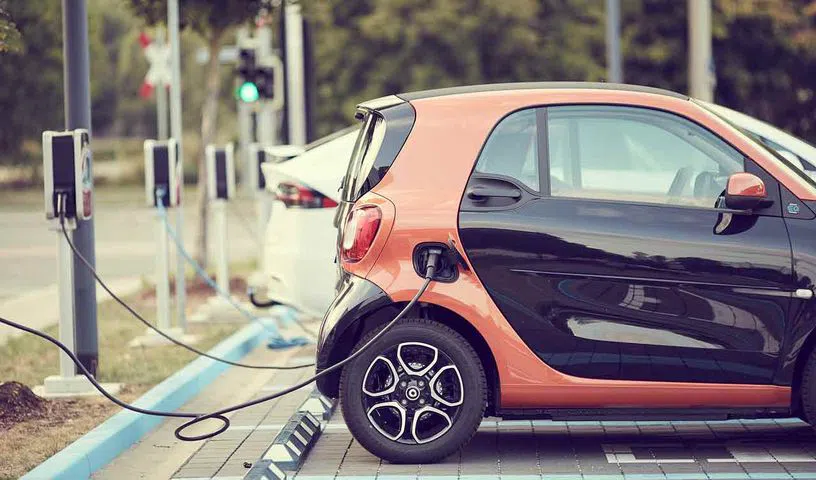Electric Vehicle owners in Hyderabad struggling with limited charging stations, call for improved infrastructure

EV car owners in Hyderabad are expressing frustration over the lack of visibility and accessibility of charging stations. They highlighted the difficulty of finding safe and functional stations, with many drivers limiting their intercity travel to under 50 kilometers. A significant number of EV car owners are calling for the development of a comprehensive and efficient charging infrastructure integrated into the existing transportation network to make locating charging stations easier and more convenient.
Hyderabad: The Electric Vehicle (EV) market in Telangana, still in a nascent stage, is facing challenges that affect owner satisfaction and the overall user experience, especially the accessibility of charging stations.
EV car owners are voicing their frustration over the non-visibility and accessibility of EV charging stations in Hyderabad city. They emphasized that finding a safe and functional charging station remains a considerable challenge, even as most drivers restrict their inter city journeys to less than 50 kilometres. A majority of EV four wheeler users express the need to build a robust and smart EV charging infrastructure embedded in our current vehicular ecosystem so that they do not face problems in locating them.
Currently, the electric vehicle charging infrastructure in Hyderabad is in its nascent stage. Most charging stations are situated inside conventional fuel pumps, mall parking, hotel premises, or corporate parks. There are about 190 EV charging stations in Hyderabad to charge electric cars.
“There is an urgent need for a vast network of charging stations in the same way as fuel pumps are now a common sight on our road networks. In fact, electric vehicle charging stations need to be more common and accessible than a regular parking space,” a EV car owner suggested.
Electric vehicle users can charge their vehicles by paying Rs 12.06 per kWh as service charges at public charging stations, which is the ceiling service cost for charging electric vehicles installed under the State or central subsidy. Those charging at home are paying domestic charges, although there are many who have installed a separate meter for charging EVs.
It is estimated that if a two wheeler is charged at home an additional Rs. 300 to 400 will add to the domestic monthly bill. Similarly, a four wheeler owner may have to shell out additional Rs. 2,500 to 3,000 per month for charging the vehicle.
How to locate EV charging stations:
The easiest way is to use the car’s built-in navigation system. Most of the advanced infotainment systems in EVs are now smart enough to not only provide you with the distance to the charging station but also give you an estimate of the remaining charge when you reach there. For those who don’t have an in-built navigation system in their EV, Google Maps is a good alternative to get directions for the nearest charging stations. Apart from this, all operators these days have a dedicated mobile application which can be used to find their nearest EV charging station.
How to charge EVs ?
Unlike a fuel station where a person dispenses petrol and diesel into your car, all EV stations are designed to be self-service networks. At the EV stations, you use the online application to make online payments and complete your charging procedure. When visiting a charging station to recharge your EV, the first thing you need to consider is the compatibility of your EV charger. One must know the capacity of your vehicle and its charger port type to check its compatibility with the charging station. Passenger vehicles in India use Type 2 AC charging plugs while EVs with DC fast charging support have slightly advanced CCS Type 2 charging plugs.
Almost all charging stations are unmanned. You have to carry out the charging process yourself and it’s all online through your smartphone. So ensure your phone is sufficiently charged, has a service network, and is capable of making online transactions or payments. Once there, you might find a QR code to download the proprietor’s mobile app. Some OEMs also provide RFID cards which can be used to tap-and-start EV charging.
Simply follow the instructions on the charging station for using the provided app to start the charging session. Some stations may also have a display screen with prompts to guide you through the process.
How long does it take to charge an electric car?
The time necessary to charge an EV at home ranges between 30 minutes and 12 hours. Majorly, the charging duration comes down to the speed of your charging point and the battery size of your vehicle. A typical battery of 60 kWh in an EV takes about 8 hours for a 0 to 100 per cent charge using a charging point of 7 kW. Using a 50 kW fast charger, you can top up the EV range by 160 km in about 35 minutes of charging.
How often does one need to charge the car?
While most of the current electric cars run for 220-280 km on a single charge, the more expensive ones with bigger batteries offer a range of 400 km, as per the Worldwide Harmonized Light Vehicles Test Procedure (WLTP).







